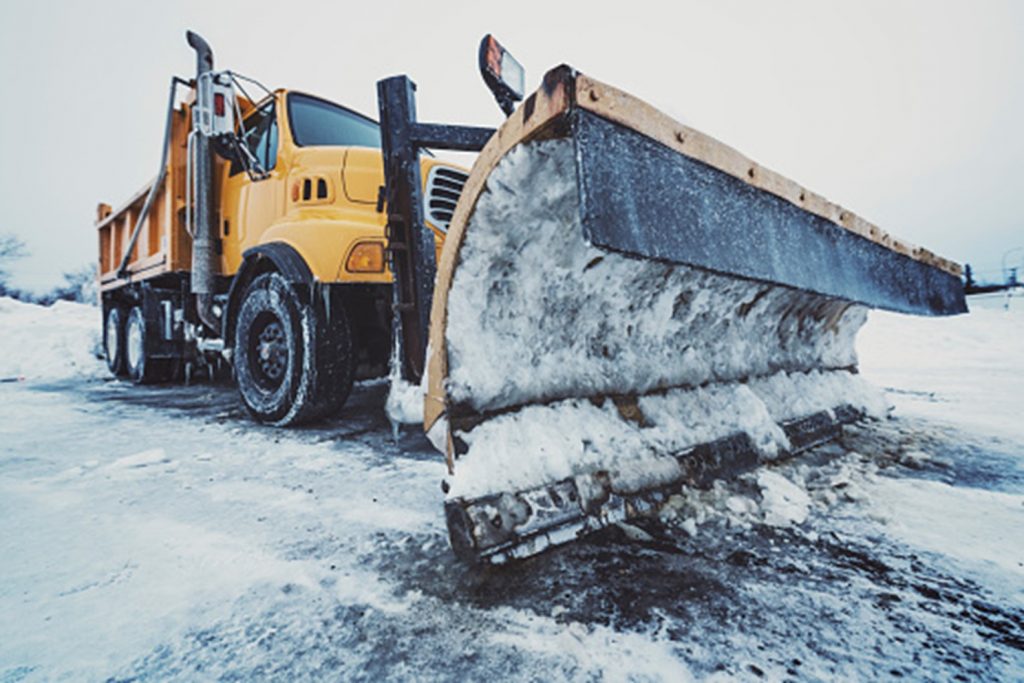- Hyderally & Associates P.C | Employment Lawyers NJ, NY
- (973) 509-8500
- tyh@employmentlit.com
Employee’s Injury After Work on Employer’s Property = Workers’ Comp Injury!
A Textbook Case Alleging Pregnancy Discrimination
January 18, 2022The Workers’ Rights Conversation Goes Online – and Hits the Mainstream
January 26, 2022By: Jennifer Vorih, Esq., and Ty Hyderally, Esq.
The Supreme Court of New Jersey recently reversed a decision of the Appellate Division, which had held that an injury to an employee of the Township of Sparta was not compensable as a Workers’ Compensation injury, because the injury occurred outside of the employee’s work hours and outside of her place of work. The Supreme Court held that the injury was indeed covered by Workers’ Compensation, because while the employee had already left work, she was still on property owned and controlled by the Township at the time of the injury.
Diane Lapsley, a librarian for Sparta Public Library, was severely injured by a snowplow when leaving work during a snowstorm. Lapsley was employed by the Township of Sparta, which both owned and controlled the parking lot in which Lapsley was injured. On February 3, 2014, the Library was closed early due to a snowstorm. Lapsley’s husband drove over to pick her up, and parked in the parking lot. He met her and they were walking back to the car when Lapsley was suddenly struck by a Township of Sparta snowplow operated by a Township employee.

Lapsley’s leg was severely injured when she was hit by the snowplow. She needed multiple surgeries on her leg, and was “permanently disfigured” due to the accident. Lapsley filed a lawsuit against the Township and the snowplow driver, Paul Austin, but then filed a Workers’ Compensation claim against the Township. The Judge in Lapsley’s Workers’ Compensation case determined that Lapsley’s injury was compensable under Workers’ Compensation, but the Appellate Division reversed that decision, because Lapsley was not working and had left her work location prior to the injury.
The Supreme Court reversed, holding that the premises rule applied. The premises rule was established as part of the 1979 amendments to the Workers Compensation Act, and is “based on the notion that an injury to an employee that happens going to or coming from work arises out of and in the course of employment if the injury takes place on the employer’s premises.” Kristiansen v. Morgan, 153 N.J. 298, 316 (1998) (citing N.J.S.A. 34:15-36). Further, the Act, as amended, provides that “[e]mployment shall be deemed to commence when an employee arrives at the employer’s place of employment to report for work and shall terminate when the employee leaves the employer’s place of employment, excluding areas not under the control of the employer.” N.J.S.A. 34:15-36. Here, since the Township owned and controlled the parking lot where the incident occurred (as demonstrated by the fact that the Township was plowing the parking lot), the Supreme Court held that the injury was covered by Workers Compensation.
This decision may appear beneficial to employees by expanding when Workers Compensation coverage applies to workplace injuries. However, it may not be the best news for employees who would rather sue the employer in court for a personal injury, as opposed to pursuing a workers compensation claim. That is because an employee may recover greater damages from a jury than they would from a Workers Compensation Court, but an employee whose injuries are covered by Workers Compensation is barred from suing their employer for personal injuries resulting from the same incident. Nonetheless, it is very reasonable that an employee’s injuries from an accident on the employer’s property, which occurred on the employee’s way to or from work, should be compensable.
En nuestra firma hablamos español. This blog is for informational purposes only. It does not constitute legal advice, and may not reasonably be relied upon as such. If you face a legal issue, you should consult a qualified attorney for independent legal advice with regard to your particular set of facts. This blog may constitute attorney advertising. This blog is not intended to communicate with anyone in a state or other jurisdiction where such a blog may fail to comply with all laws and ethical rules of that state of jurisdiction.

